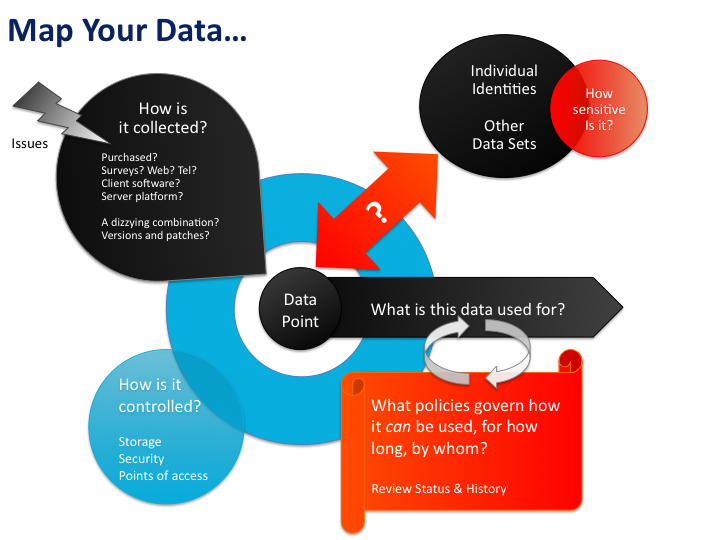Common Data Project at IAPP Privacy Academy 2010
[pullquote]We will be giving a Lightning Talk on "Low-Impact Data-Mining" and running two breakout sessions at the IT Privacy Foo Camp - Preconference Session, Wednesday Sept 29.[/pullquote]Below is a preview of our slides and handout for the conference. Unlike our previous presentations, we won't be talking about CDP and the Datatrust at all. Instead, we'll be focused on presenting on how SGM helps companies minimize the privacy impact of their data-mining.More specifically, we'll be stepping through the symbiotic documentation system we've created between the product development/data science folks collecting and making use of the data and the privacy/legal folks trying to regulate and monitor compliance with privacy policies. We will be using the SGM Data Dictionary as a case study in the breakout sessions.Still, we expect that many of issues we've been grappling with from the datatrust perspective (e.g. public perception, trust, ownership of data, meaningful privacy guarantees) will come up as they are universal issues that are central to any meaningful discussion about privacy today.
Handout
What is data science?
An introduction to data-mining from O'Reilly Radar that provides a good explanation of how data-mining is distinct from previous uses of data and provides plenty of examples of how data-mining is changing products and services today.
The "Anonymous" Promise and De-indentification
- How you can be re-identified: Zip code + Birth date + Gender = Identity
- Promising new technologies for anonymization: Broken Promises of Privacy: Responding to the Surprising Failure of Anonymization by Paul Ohm.
Differential Privacy: A Programmatic Way to Enforce Your Privacy Guarantee?
- A Microsoft Research Implementation: PINQ
- CDP's write-up about PINQ.
- A deeper look at how differential privacy's mathematical guarantee might translate into laymen's terms.
Paradigms of Data Ownership: Individuals vs Companies
- Markets and Privacy by Kenneth C. Laudon
- Privacy as Property by Lawrence Lessig
- CDP explores the advantages and challenges to a "Creative Commons-style" model for licensing personal information?
- CDP's Guide to How to Read a Privacy Policy